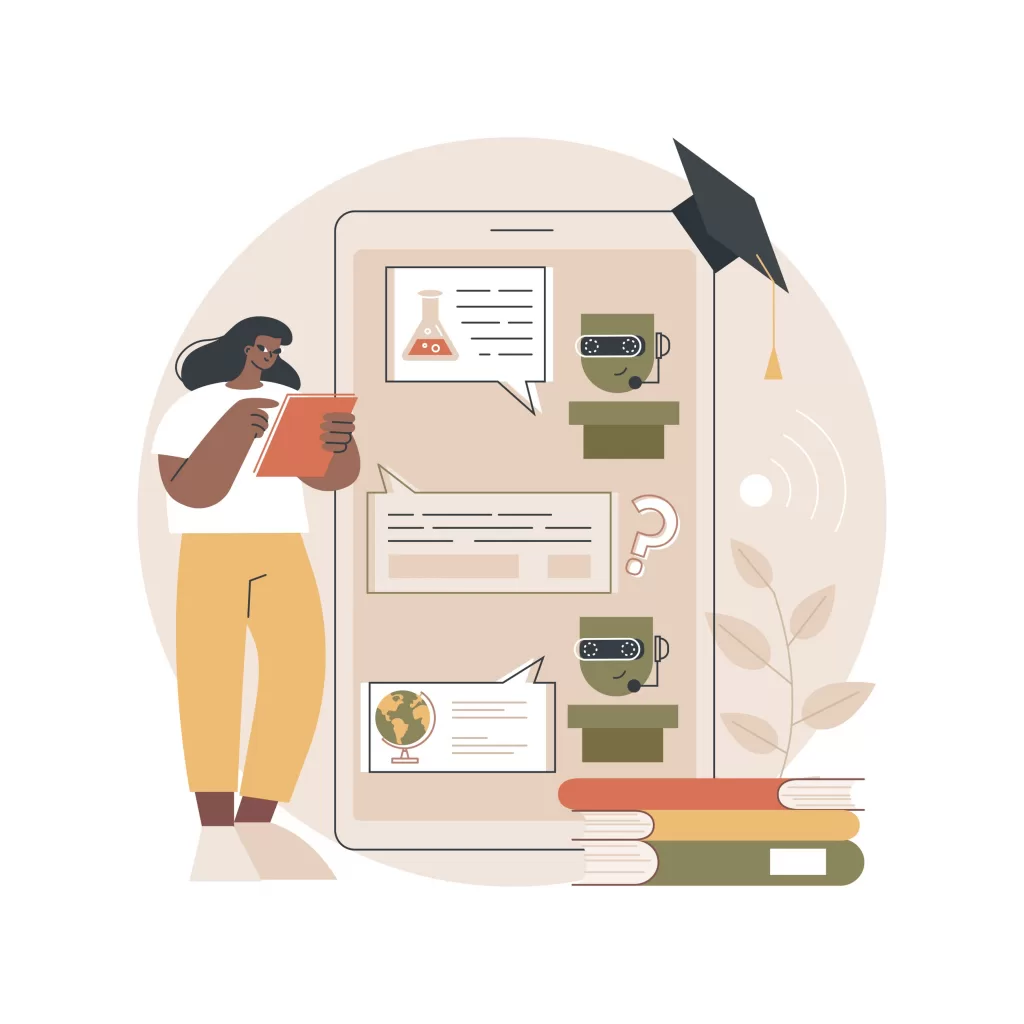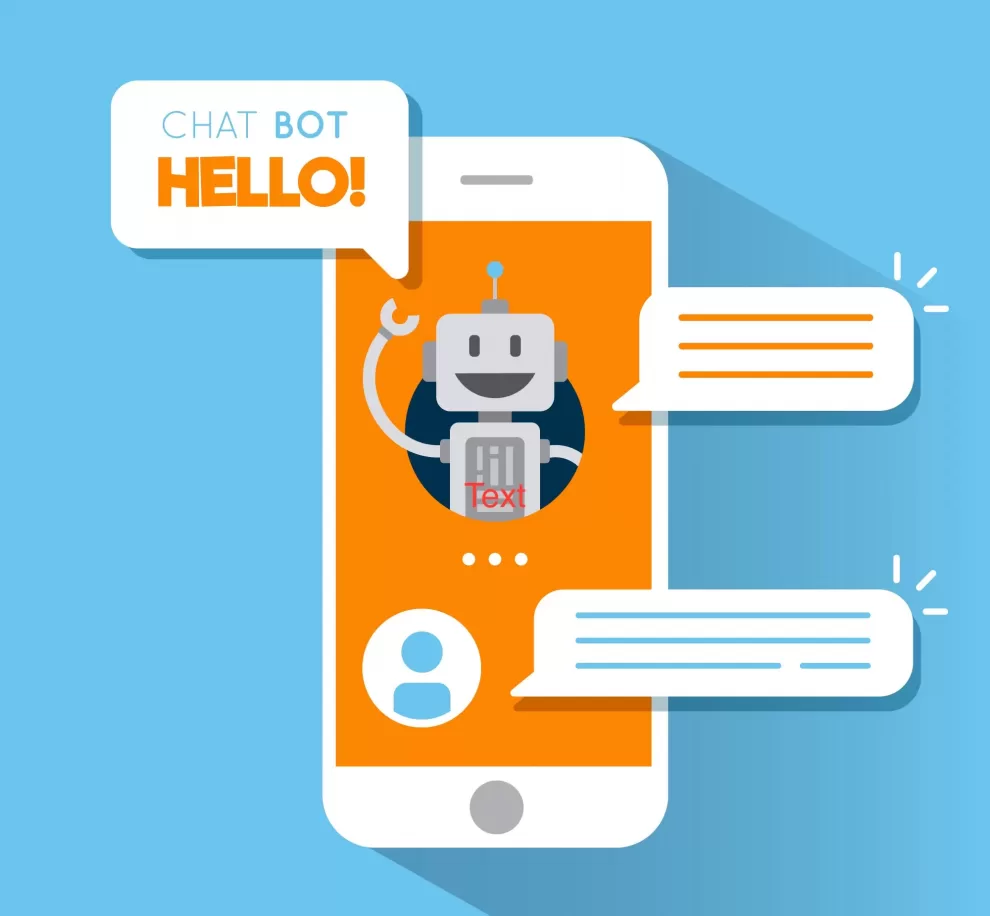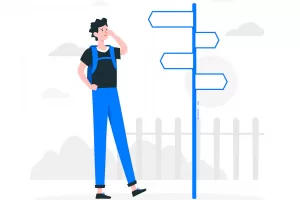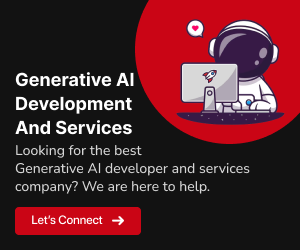The evolution of chatbots has been nothing short of remarkable. From basic scripted responses to intelligent virtual agents, chatbots have come a long way in transforming customer service, automating business processes, and enhancing user experiences. One significant driving force behind this evolution is Generative AI, which has revolutionized the way chatbots interact with users. In this blog, we will delve into how chatbots are changing with Generative AI and the impact this transformation is having on various industries.
The Rise of Generative AI
Generative AI, powered by advanced language models like GPT-3, has been a game-changer in the world of chatbots. Unlike rule-based chatbots, which rely on pre-defined scripts, Generative AI enables chatbots to understand and generate human-like text responses. This shift has made chatbots more versatile, adaptive, and capable of handling complex conversations.
Enhanced Natural Language Understanding:
Generative AI has significantly improved the natural language understanding of chatbots. These chatbots can now comprehend user inputs more effectively, even when faced with varied language, slang, or context-specific terms. This leads to a more seamless and human-like conversation, as chatbots can better grasp the nuances of language.
Contextual Conversations:
One of the most remarkable features of Generative AI is its ability to maintain context in conversations. This means that chatbots can remember previous interactions and build upon them. For instance, if a user asks a chatbot to recommend a good restaurant, and in the next message, they inquire about vegetarian options, the chatbot can remember the initial request and provide a more personalized response. This contextual understanding greatly improves the overall user experience.
Personalization:
Generative AI empowers chatbots to offer highly personalized responses. By analyzing user data and previous interactions, chatbots can provide tailored recommendations, suggestions, and responses. This level of personalization not only enhances the user experience but also helps businesses in customer engagement and marketing efforts.
Multilingual Capabilities:
Generative AI-powered chatbots can handle multiple languages with ease. They can automatically detect the user’s language preference and respond in the same language, breaking down language barriers and making chatbots accessible to a global audience.
Improving Customer Support:
Generative AI chatbots are revolutionizing customer support by providing 24/7 assistance. These chatbots can handle a wide range of customer queries, resolve issues, and even escalate problems to human agents when necessary. This results in faster response times, reduced customer frustration, and improved overall satisfaction.
Automating Complex Tasks:
Generative AI chatbots are not limited to basic FAQs. They can automate complex tasks such as data entry, appointment scheduling, and even content creation. This automation streamlines business operations, reduces errors, and allows employees to focus on more strategic tasks.
Empowering Various Industries:
Generative AI chatbots are transforming numerous industries. In healthcare, they are assisting with appointment bookings and providing medical information. In e-commerce, they’re helping customers find products and make purchases. In finance, they’re handling account inquiries and offering financial advice. The applications are virtually limitless.
The Usefulness of Chatbots
Chatbots have become increasingly useful in various industries and applications due to their ability to provide quick and efficient automated assistance. Here, we will discuss in detail how chatbots are useful in different contexts:
Customer Support:
24/7 Availability:
Chatbots are available round the clock, providing customers with immediate assistance, reducing response time, and eliminating the need to wait for human agents.Frequently Asked Questions:
Chatbots can efficiently handle common customer queries, freeing up human agents to focus on more complex issues.Consistency:
They provide consistent and accurate responses, reducing the risk of human errors and ensuring a uniform customer experience.
E-commerce:
Product Recommendations:
Chatbots can analyze user preferences and behavior to suggest products or services, leading to increased sales and improved user satisfaction.Order Tracking:
Customers can easily track their orders and receive real-time updates without having to navigate through a website or contact customer support.
Healthcare:
Appointment Scheduling:
Patients can schedule appointments, check availability, and receive reminders through chatbots, streamlining the scheduling process.Medical Information:
Chatbots can provide information on symptoms, diseases, and first-aid advice, offering immediate assistance before consulting a healthcare professional.
Finance:
Account Management:
Chatbots help users check account balances, transaction history, and manage basic banking services without visiting a physical branch or website.Financial Advice:
They can provide financial guidance, such as budgeting tips, investment advice, or information about available services.
Human Resources:
Onboarding:
Chatbots can guide new employees through the onboarding process, answering questions and providing essential information.Leave Requests:
Employees can submit leave requests and check their leave balances using HR chatbots, reducing administrative overhead.
Education:
Tutoring:
Educational chatbots can provide students with instant answers to questions, offer explanations, and help with homework or exam preparation.Course Guidance:
Chatbots can assist in course selection, helping students make informed decisions about their academic path.
Tutoring:
Educational chatbots can provide students with instant answers to questions, offer explanations, and help with homework or exam preparation.
Travel and Hospitality:
Booking and Reservations:
Chatbots assist with hotel bookings, flight reservations, and rental car arrangements, simplifying the travel planning process.Travel Information:
They can provide information on local attractions, dining options, and transportation services to enhance the traveler’s experience.
Content Creation:
Generating Text:
Chatbots can assist with content creation by generating text for articles, reports, or marketing materials.Editing and Proofreading:
They can review and edit written content for grammar, style, and accuracy.
Data Entry and Automation:
Data Processing:
Chatbots can automate data entry tasks, reducing the risk of errors and increasing productivity.Workflow Automation:
They streamline business processes by automating routine tasks and improving efficiency.
Language Translation:
Chatbots equipped with translation capabilities can break language barriers, making content and information accessible to a global audience.
Also read: “Smart Algorithms, Smarter Solutions: Generative AI’s Role in IT Problem Solving“.
Generative AI and the Future of Chatbots

Generative AI, a remarkable form of artificial intelligence, possesses the ability to create new content across various domains, including text, code, images, and music. This innovation is made possible through the utilization of large language models (LLMs), which have undergone extensive training on vast datasets of text and code. Through this process, they acquire an understanding of the intricate patterns and relationships in language and code, enabling them to generate content that closely resembles the data they’ve been trained on. So, how is generative AI revolutionizing the future of chatbots? Let’s explore some of the compelling ways:
More Natural and Engaging Conversations:
Generative AI-driven chatbots excel in creating natural and engaging conversations with users. They grasp the conversation’s context and craft responses that are not only relevant but also informative, leading to more meaningful interactions.
Better Customer Service:
Generative AI chatbots are making waves in the realm of customer service. They can swiftly address customer queries, resolve issues, and provide personalized recommendations, significantly enhancing the customer experience.
New Use Cases:
Generative AI chatbots are opening doors to a plethora of innovative use cases across education, healthcare, and entertainment. For instance, they are serving as educators, offering medical advice, or even generating personalized stories to captivate audiences.
Examples of Generative AI-Powered Chatbots in Action
Generative AI is ushering in a new era for chatbots. Chatbots powered by generative AI are not only more intelligent and capable but also deeply engaging. They have already found applications in improving customer service, facilitating education and healthcare, and entertaining users. Some of the Chatbots in action are given below:
Google AI:
Leveraging generative AI, Google is developing chatbots to assist people with disabilities, such as those with autism, in acquiring social skills. These chatbots are designed to provide tailored guidance and support.
Facebook:
Facebook’s generative AI chatbots are making language barriers a thing of the past. They can facilitate conversations between individuals who speak different languages, seamlessly translating and enabling cross-cultural communication.
Microsoft:
Microsoft has harnessed generative AI to enhance customer service through chatbots. These virtual assistants are adept at addressing customer inquiries regarding products and services, providing solutions, and streamlining issue resolution.
Conclusion
Generative AI has ushered in a new era of chatbot capabilities, making them smarter, more adaptable, and better at understanding and interacting with users. The impact of this transformation is profound, reaching across various industries and fundamentally changing the way businesses engage with customers. As Generative AI continues to evolve, chatbots will only become more sophisticated and invaluable tools for organizations seeking to improve customer experiences, streamline operations, and stay competitive in an increasingly digital world.


























Add Comment